Miraculous discovery when cutting down areca palm trees in the garden || Kelulut nest and honey (Meliponini)
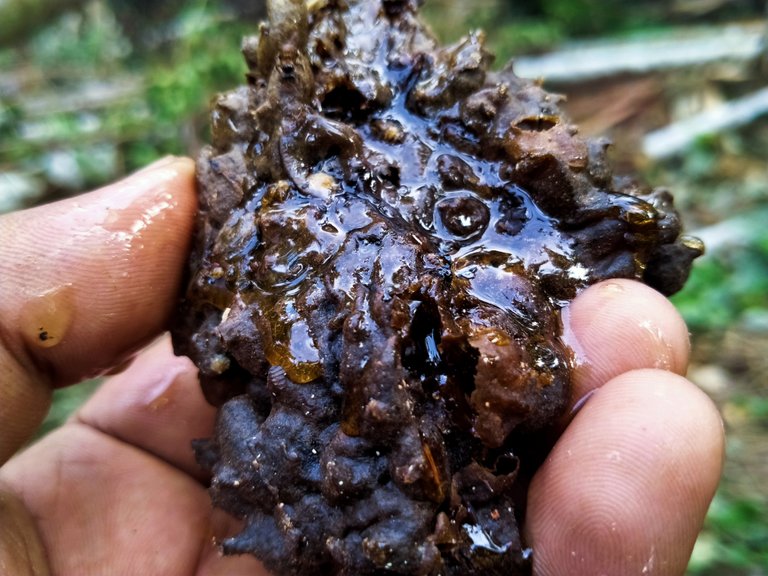
Hi everyone,, when I was cleaning agricultural land with our workers, a very interesting experience happened, at that time, I was focusing on capturing people who were cutting down old areca palm trees in my garden so that I could plant other trees, but when a worker cut betel nut tree into several pieces so that I could easily move it to another place, when he cut the areca tree it split into several pieces because of the pressure at the end, and unexpectedly I saw a group of mother kelulut flying around the worker, and I started to check what was happening. is going? and sure enough I found something that interested me and was a first experience for me.
At that time I saw a structure hidden in the areca palm tree, after looking closely it turned out to be a kelulut bee nest, the nest looked very neat made from natural wax produced by kelulut bees, I was amazed to see how detailed the construction of the nest was, and how skilled the kelulut bees are in making nests to such detail, I noticed that the nests were made separately between the nests where they breed and the nests for honey, they made them into two separate places.
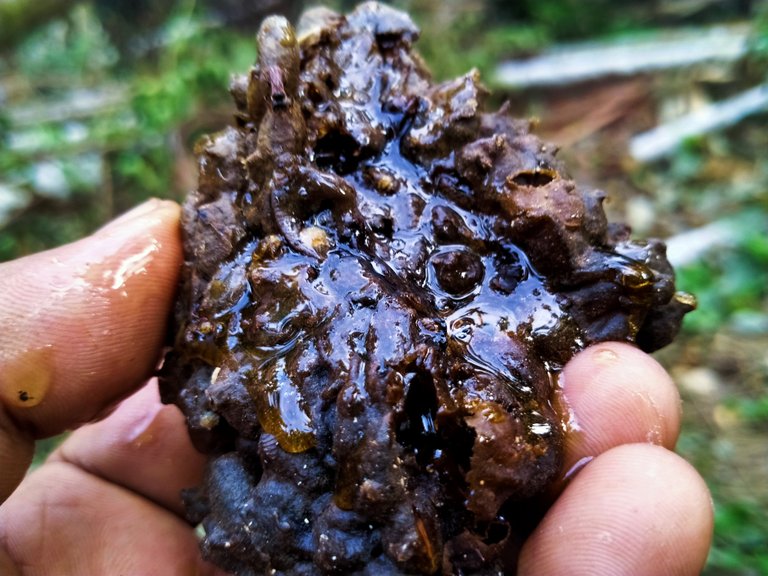
The honeycomb that I took from the trunk of a areca palm tree, the honey dripped out due to being pinched when I took the nest.

This nest is made specifically for honey by kelulut bees, it looks like a balloon and is very neatly arranged, and this nest is very difficult to separate from one nest to another.
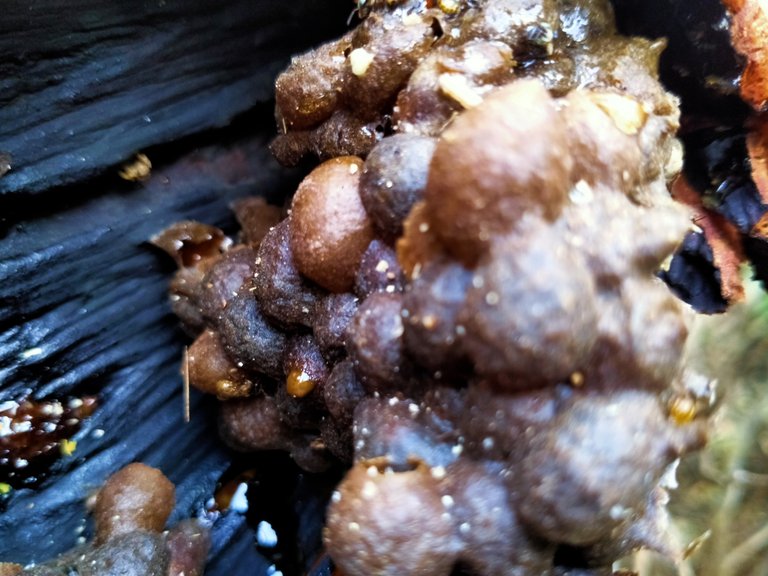
This nest is made specifically for honey by kelulut bees, it looks like a balloon and is very neatly arranged, and this nest is very difficult to separate from one nest to another.
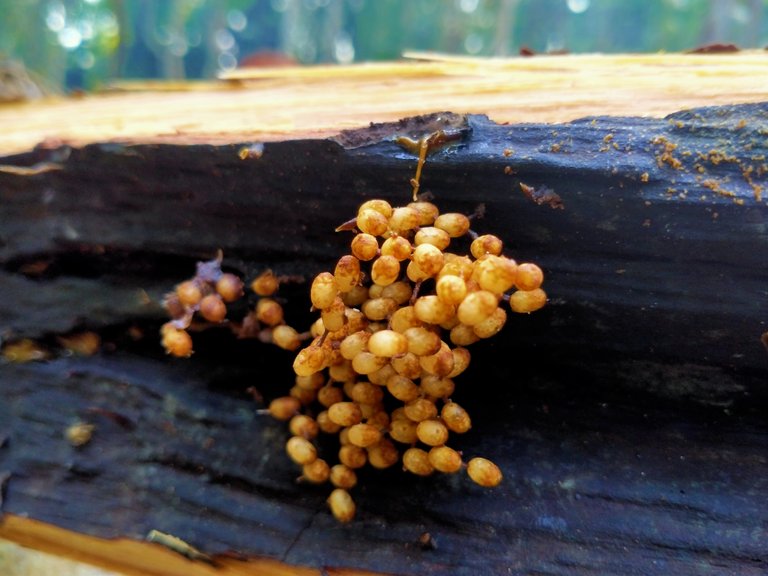
The kelulut eggs look very beautiful and these will all become the brood of kelulut bees after they are dripped later.
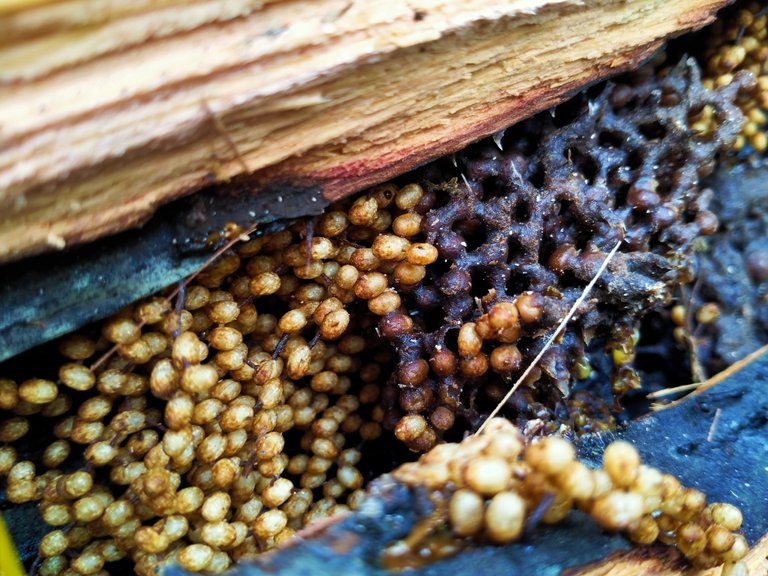
I found a large number of kelulut eggs, these were all located under the honeycomb when the areca palm trees were still standing upright before our workers cut down the areca palm trees.

Kelulut eggs have a golden white color, and all parts of the egg contain natural wax which is thinly coated, so that it binds the egg shell.
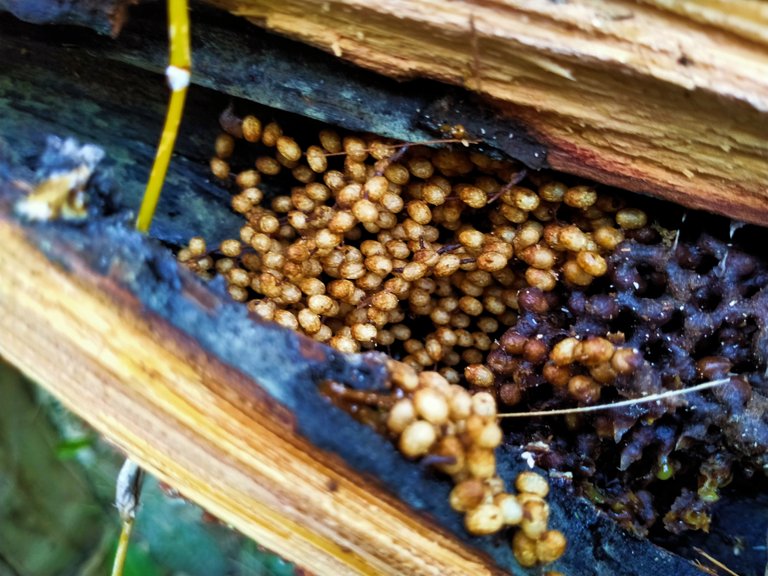
Kelulut eggs live in narrow holes, but kelulut turn them into perfect homes.

Kelulut honey is left in the holes of areca palm trees, it looks very thick with a distinctive honey color.
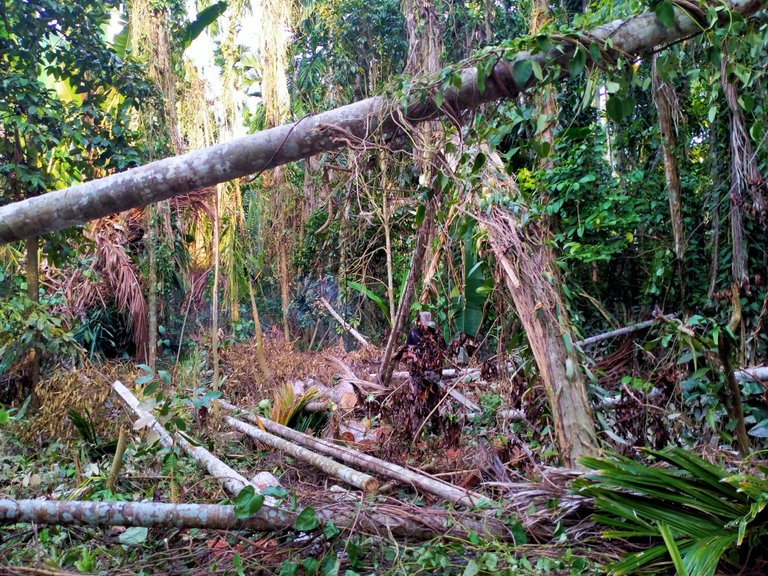
This is a areca palm tree after being knocked down by our workers but not yet cut into several parts.
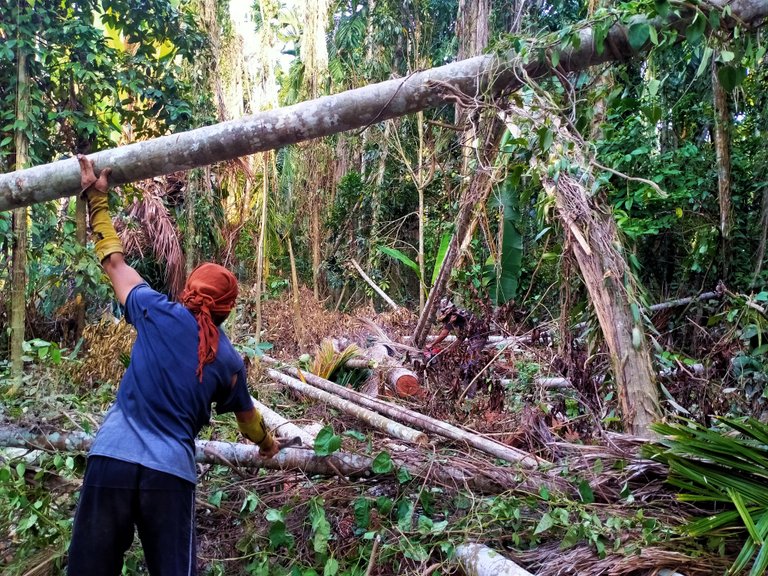
when one of our workers cleared the vines and cut off the tips of the areca palm trees.
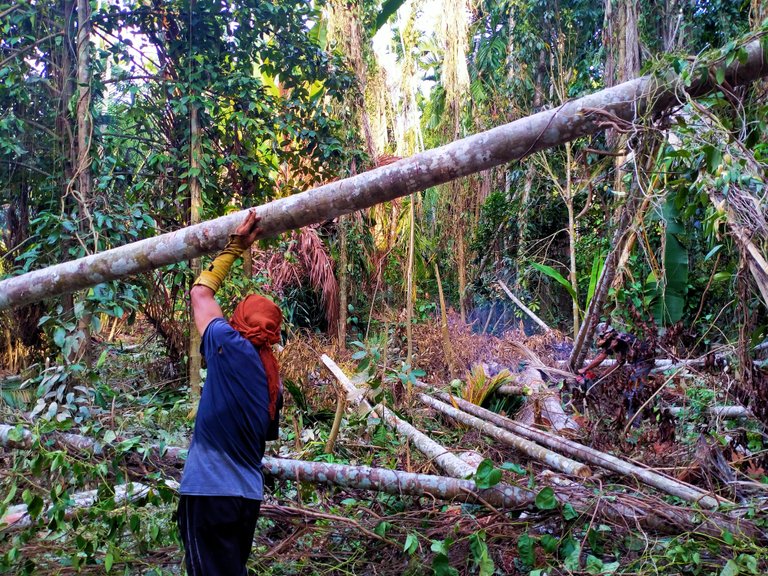
The areca palm tree looks very hard, and the areca palm tree is no longer productive.

and this is where it all started, when one of our workers was cutting the trunk of a areca palm tree using a chainsaw, from afar I saw lots of insects flying around the worker, I went over and checked and it turned out that all the insects were kelulut bees that had flown because their nest had been destroyed disturbed.
from that experience I came to understand that the nest is not only a residence for kelulut bees but also stores reserves of honey, as you may have heard that kelulut honey is known to have many health benefits, high quality honey is produced by kelulut bees from the flower nectar they collected, I felt lucky because I was able to find kelulut bee nests and honey directly, this was a very valuable experience in my life.
by sharing this experience via Hive social media, I hope to inspire other people to care more about the environment and biodiversity around them, whether small or large, every action we take in preserving nature has a significant impact on the survival of life on this planet , I also hope that these findings can be a reminder for all of us of the hidden natural wonders around us.
I have taken the kelulut beehive to a safe place so that they can reproduce and continue life for many generations to come, I just took the honeycomb and enjoyed it, it was really very delicious, I found a distinctive taste in this honey, namely the taste sweet mixed with fruity flavors, it makes for a perfect flavor collaboration.
Thank you very much for visiting & reading my blog, I hope this post is useful for everyone, see you in the next post & have a nice day:)
This post has been manually curated by @steemflow from Indiaunited community. Join us on our Discord Server.
Do you know that you can earn a passive income by delegating to @indiaunited. We share more than 100 % of the curation rewards with the delegators in the form of IUC tokens. HP delegators and IUC token holders also get upto 20% additional vote weight.
Here are some handy links for delegations: 100HP, 250HP, 500HP, 1000HP.
100% of the rewards from this comment goes to the curator for their manual curation efforts. Please encourage the curator @steemflow by upvoting this comment and support the community by voting the posts made by @indiaunited.
Thanks very much 🙏
Nice experience, i hope that the honey is good!
Thanks very much 🙏
I hope you colleague was not stuck by the bees. It is so possible to find bees in unexpected parts of the forest.
Thanks very much, they are fine, and kelulut bees are actually not dangerous, it's just that we need to take care of our ears, because kelulut bees hunt the holes
Thanks for your contribution to the STEMsocial community. Feel free to join us on discord to get to know the rest of us!
Please consider delegating to the @stemsocial account (85% of the curation rewards are returned).
You may also include @stemsocial as a beneficiary of the rewards of this post to get a stronger support.
That’s so nice of you thinking about the environment actually we all should be concerned about this matter before it’s too late.
That's really cool you found a stingless bee hive.. I have raised solitary bees "mason bees". They rarely sting but do not produce honey.. but they pollinate really well so glad to have them.
mason bees still sound not familiar to me, but if you want to get honey I think you can keep the type of bee that I share, this bee is very easy to keep